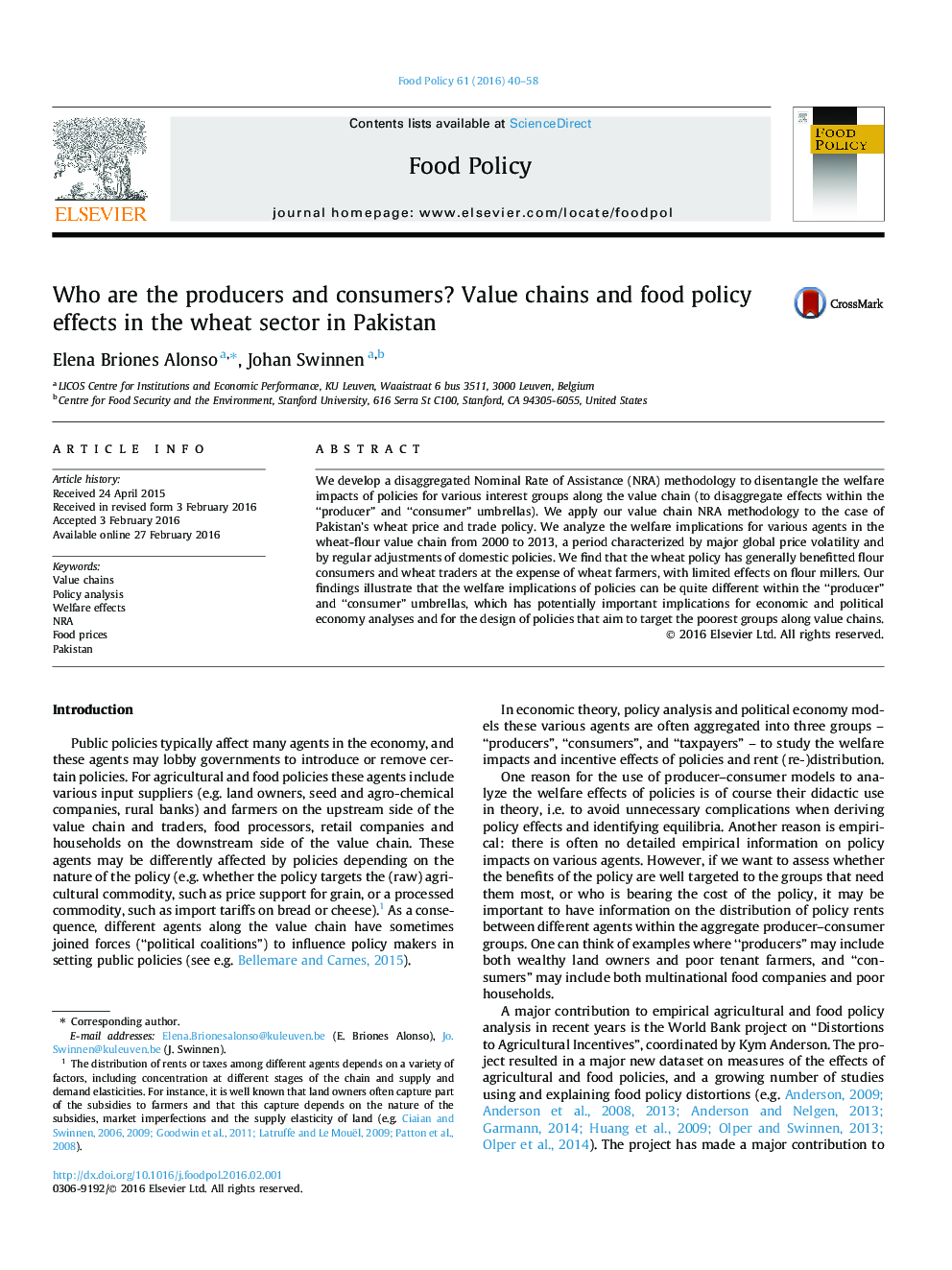| Article ID | Journal | Published Year | Pages | File Type |
|---|---|---|---|---|
| 5070227 | Food Policy | 2016 | 19 Pages |
â¢We develop a value chain approach to the Nominal Rate of Assistance (NRA) method.â¢To calculate disaggregated policy effects for various agents along the value chain.â¢We apply our value chain NRA to the case of Pakistan's wheat policy in 2000-2013.â¢Flour consumers and wheat traders are subsidized at the expense of wheat farmers.â¢The impact on flour mills is small, although they capture some consumer rents.
We develop a disaggregated Nominal Rate of Assistance (NRA) methodology to disentangle the welfare impacts of policies for various interest groups along the value chain (to disaggregate effects within the “producer” and “consumer” umbrellas). We apply our value chain NRA methodology to the case of Pakistan's wheat price and trade policy. We analyze the welfare implications for various agents in the wheat-flour value chain from 2000 to 2013, a period characterized by major global price volatility and by regular adjustments of domestic policies. We find that the wheat policy has generally benefitted flour consumers and wheat traders at the expense of wheat farmers, with limited effects on flour millers. Our findings illustrate that the welfare implications of policies can be quite different within the “producer” and “consumer” umbrellas, which has potentially important implications for economic and political economy analyses and for the design of policies that aim to target the poorest groups along value chains.
